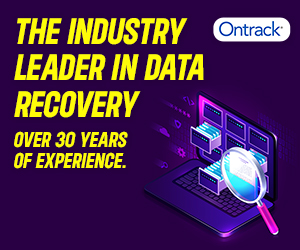In the modern business landscape, Human Resources (HR) operations serve as the backbone of organizational success, driving efficiency, productivity, and employee satisfaction. The integration of technology has revolutionized traditional HR practices, offering innovative solutions to streamline processes and foster strategic growth. In this blog post, we delve into nine profound ways technology enhances HR operations, ultimately propelling business growth and success.
Automated Recruitment Processes
Technology has fundamentally transformed the recruitment landscape, making the hiring process more efficient, transparent, and data-driven. Automated Recruitment Systems (ATS) have emerged as a cornerstone of modern HR operations, enabling organizations to efficiently manage candidate pipelines, screen resumes, and streamline interview processes. These systems utilize algorithms to match job requirements with candidate profiles, minimizing bias and ensuring fair evaluations. These advancements not only save time but also allow HR professionals to focus on strategic initiatives, making it crucial for companies to invest in the best HR platforms that align with their specific needs and goals. By automating repetitive tasks, HR professionals can dedicate more time to building relationships with candidates, conducting in-depth interviews, and strategically aligning recruitment efforts with organizational goals. The result is a streamlined and cost-effective hiring process that attracts top talent and drives business growth.
Data-Driven Decision Making
The proliferation of technology has empowered HR professionals with unprecedented access to data analytics tools, enabling them to make informed decisions that drive organizational success. By leveraging employee data, HR teams can identify patterns, trends, and areas for improvement across various aspects of the workforce. From performance metrics to employee engagement levels, data-driven insights enable HR professionals to proactively address challenges, optimize processes, and align strategies with organizational objectives. Whether it’s optimizing workforce allocation, identifying training needs, or forecasting talent trends, data-driven decision-making ensures that HR initiatives are strategic, impactful, and geared toward driving sustainable business growth. Even for small and medium-sized businesses, investing in simple data analytics tools can provide valuable insights that fuel HR operations and contribute to overall business success.
Employee Engagement Platforms
Employee engagement lies at the heart of a thriving organizational culture, and technology has emerged as a powerful enabler of employee engagement initiatives. Employee engagement platforms offer a holistic solution for fostering a positive work environment, enhancing communication, and recognizing employee contributions. These platforms often feature interactive forums, pulse surveys, and peer recognition tools, allowing employees to voice their opinions, share feedback, and feel valued within the organization. By promoting transparency, collaboration, and recognition, HR professionals can cultivate a culture of engagement that boosts morale, enhances productivity, and fuels business growth.
Learning Management Systems (LMS)
Continuous learning and skill development are essential for organizational agility and competitiveness in today’s rapidly evolving business landscape. Learning Management Systems (LMS) have emerged as a cornerstone of modern HR operations, offering a centralized platform for delivering training, tracking progress, and measuring learning outcomes. By leveraging LMS, HR professionals can design personalized learning paths, curate content, and facilitate collaboration among employees. From onboarding new hires to upskilling existing talent, LMS empowers organizations to nurture a culture of continuous learning, innovation, and adaptability, driving long-term business growth and success.
Remote Work Facilitation
The advent of technology has transformed the way we work, ushering in an era of remote collaboration, flexibility, and virtual connectivity. Remote work facilitation tools have become indispensable for HR professionals tasked with managing distributed teams, fostering collaboration, and maintaining productivity. From video conferencing platforms to project management tools, technology enables seamless communication, coordination, and collaboration across geographically dispersed teams. By embracing remote work facilitation tools, organizations can tap into a global talent pool, enhance work-life balance, and drive operational efficiency, ultimately fueling business growth in an increasingly interconnected world. The work-life balance aspect is increasingly important in the wake of the COVID-19 pandemic, with technology serving as a crucial enabler for remote work and business continuity.
Performance Management Software
Traditional performance management processes are being reimagined and enhanced through the integration of technology-driven performance management software. These platforms offer a comprehensive solution for setting goals, providing feedback, and evaluating employee performance in real time. By replacing annual reviews with ongoing feedback loops, HR professionals can foster a culture of transparency, accountability, and continuous improvement. Performance management software also enables data-driven insights into employee performance trends, strengths, and areas for development, empowering HR teams to make informed decisions that drive individual and organizational success.
AI-Powered Predictive Analytics
Artificial Intelligence (AI) and predictive analytics have revolutionized HR operations, offering predictive insights into workforce dynamics, trends, and potential challenges. By analyzing vast amounts of data, AI-powered predictive analytics algorithms can forecast turnover rates, identify flight risks, and recommend proactive interventions to mitigate talent shortages. From predicting future hiring needs to optimizing workforce planning and succession strategies, AI empowers HR professionals to anticipate and respond to evolving business needs, driving organizational resilience and sustainable growth in an increasingly dynamic and competitive marketplace.
Cloud-Based HR Systems
The adoption of cloud technology has transformed HR operations, offering scalable, secure, and cost-effective solutions for managing critical HR functions and data. Cloud-based HR systems provide a centralized platform for storing employee information, managing payroll, and administering benefits across diverse workforce populations. By leveraging cloud-based solutions, HR professionals gain real-time access to critical data, insights, and analytics, enabling informed decision-making and strategic workforce planning. Moreover, cloud-based HR systems offer enhanced flexibility, scalability, and mobility, empowering organizations to adapt to changing business needs and drive growth in a rapidly evolving digital landscape.
Compliance and Security Solutions
Ensuring compliance with regulatory requirements and safeguarding sensitive employee data are paramount considerations for HR professionals. Technology has played a pivotal role in enhancing compliance and security measures, offering advanced solutions for data encryption, access control, and regulatory compliance monitoring. From GDPR compliance to data breach prevention, HR professionals leverage technology-driven solutions to mitigate risks, protect employee privacy, and maintain regulatory compliance. By implementing robust compliance and security measures, organizations build trust, instill confidence, and foster a culture of transparency and integrity, laying the foundation for sustainable business growth and success. Whether it is through automated background checks or secure document management systems, technology streamlines compliance processes, minimizing risks and enabling HR professionals to focus on strategic initiatives that drive business growth.

In conclusion, the integration of technology into HR operations has ushered in a new era of innovation, efficiency, and strategic growth for organizations worldwide. From automated recruitment processes to data-driven decision-making and remote work facilitation, technology empowers HR professionals to drive transformative change, enhance employee experiences, and fuel business growth in an increasingly dynamic and competitive landscape. As organizations embrace digital transformation and harness the power of technology, HR remains at the forefront of driving organizational success, shaping cultures, and cultivating talent for the future. By embracing technological advancements and leveraging data-driven insights, HR professionals can navigate complex challenges, seize new opportunities, and chart a course toward sustainable growth and prosperity in the digital age.






1 Comment